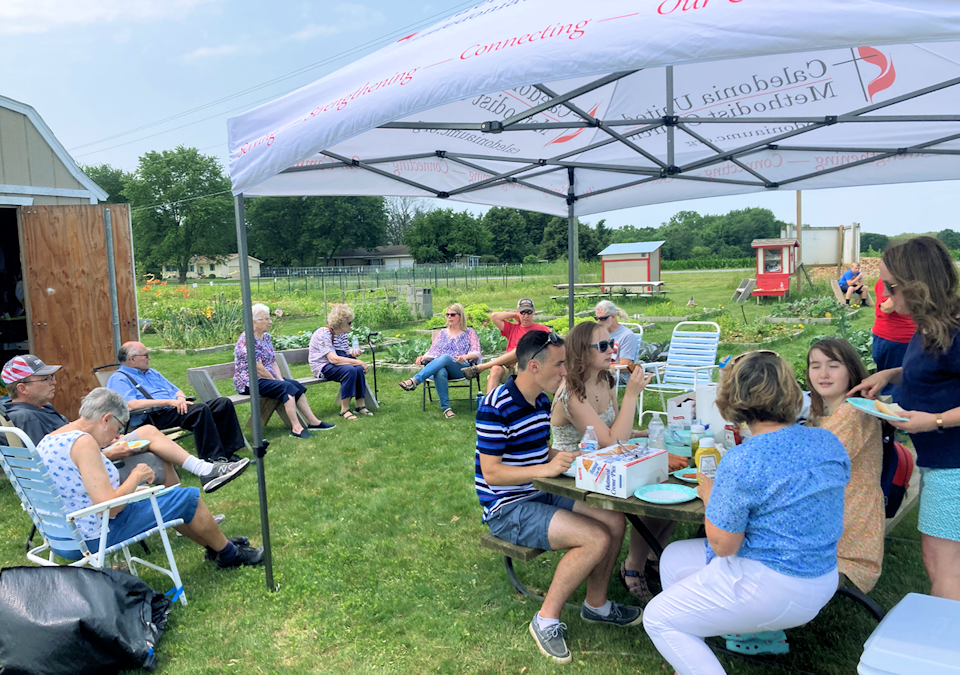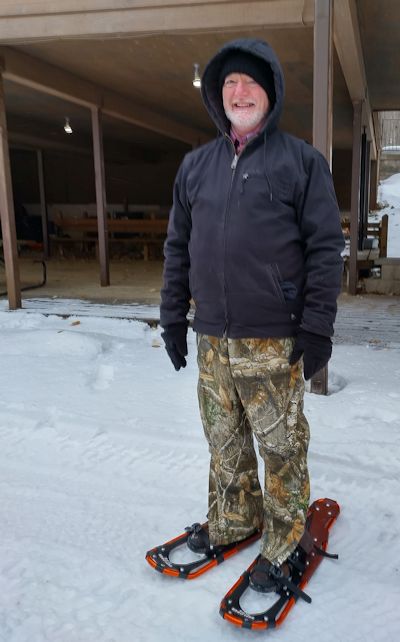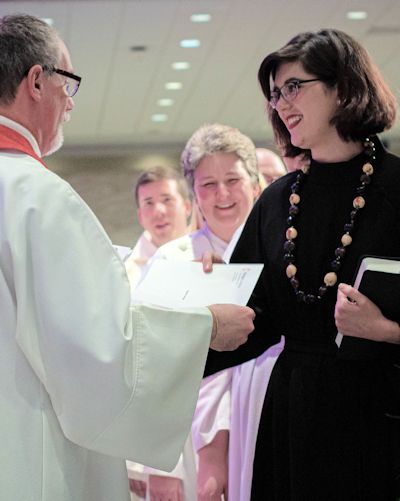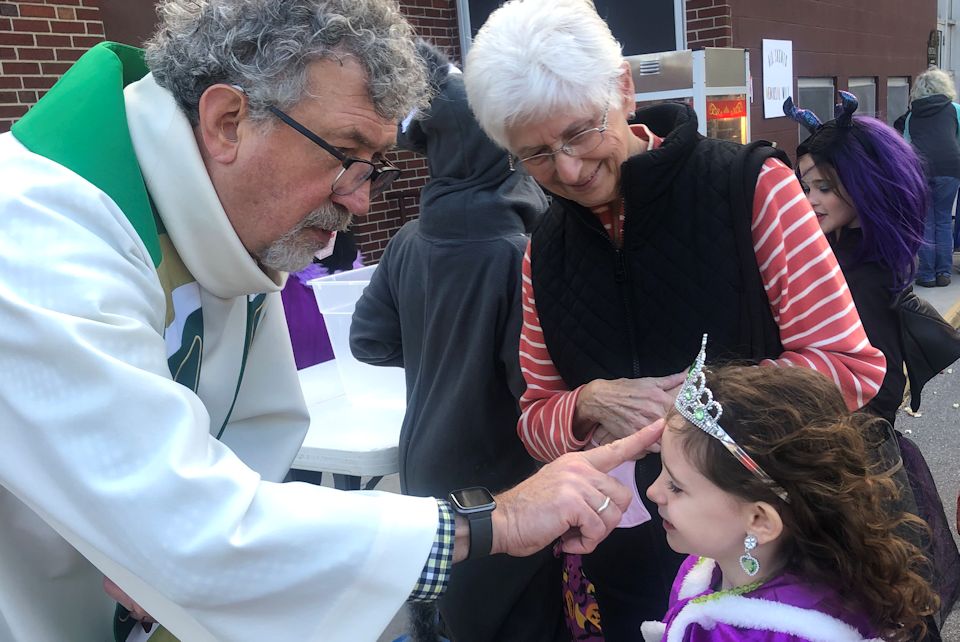Two years of COVID risks and uncertainty have left their mark on Michigan’s churches. But these pastors are among many who found the courage, stamina, and grace to manage change. The second in a series.
KAY DEMOSS
Senior Content Editor
COVID-19 has dominated many world headlines and most footnotes of daily life for the last two years. From the moment in March of 2020, when pastors and laity hit the pause button on all in-person parish activities, to today, as virus statistics seem to be mercifully on the way down, much has been written about the effects the pandemic had and will have on the church.
In a feature story published in Leading Ideas, the Lewis Center for Church Leadership newsletter, the Rev. Tom Berlin identified, 4 Truths about Ministry Revealed by the Pandemic.”
- There is renewed energy in seeking fresh ways of serving Jesus.
- The Holy Spirit meets us in new and fresh ways even amid the stress of the pandemic.
- Christ-filled, loving relationships are more important than ideological conformity.
- The importance of our callings is magnified when the work is harder.
Berlin’s insights emerge from his serving a large, multi-campus United Methodist congregation in Herndon, VA. However, three Michigan pastors serving around the state voice offer similar observations.
Acknowledging stress
Elizabeth Hurd pastors Caledonia United Methodist Church, a 25-minute drive south from Grand Rapids. Elizabeth graduated from seminary in May of 2019. She was commissioned in June of 2019 and served for nine months before COVID became a household word. She says, “Personally, the biggest source of stress has been navigating the pandemic while serving in my first church.” Noting that “everyone’s first church is always stressful,” Hurd adds, “You’re in a learning process, translating everything you learned in seminary into practical ministry, while also learning to ‘take thou authority’ as a person appointed to lead your church. You’re learning what it truly means to be a pastor, but you’re also leading as a pastor. That’s stressful enough outside a pandemic.” Then, throw a pandemic. “Hard and unpopular decisions have to be made for the good of the community,” Hurd says, “and that’s even more stress for a young or new clergy person.”
And she is not alone. Her take-away from other conversations with young or new clergy is, “You’ll find the common sentiment that this is a ‘heckuva’ time to enter ministry. A sort of real trial by fire.”
After 23 months in the shadow of COVID, Hurd observes, “For my community, I think we’ve hit a point of pandemic weariness.” She describes it this way. “Some want us to continue doing what we can to keep the community safe, whether canceling groups or wearing masks. Others just want all requirements lifted so they have the liberty to make their own choice. Some want ministry to change. Others want ministry to revert back to what it looked like pre-pandemic.”
Now in his 13th year at Central United Methodist Church in Traverse City, but his first year as Senior Pastor, Chris Lane’s concern is for the entire staff. “It is challenging for our staff who have continually pivoted & adapted the past two years,” Lane says. He sees it as a balancing act where staff must “temper their fatigue and at the same time offer more creative ministries to families still reluctant to return.”
St. Ignace United Methodist Church welcomed Mark Thompson in July of 2020, five months into the pandemic. However, Thompson and the congregation have taken it in stride. “I am thankful that COVID is not a huge issue at St. Ignace UMC.” But he continues with regret. “In the larger picture of our culture, there is unrelenting divisiveness threatening the stability of even the smallest of communities. My heart aches to think that people are still refusing to be vaccinated because of misinformation and outright lies propagated.”
COVID risk factors are a source of anxiety for Thompson. “It gives me pause,” he says, “to think that there are some people that I have yet to meet in my current congregation after 18 months. Of course, there might be a few people who are more difficult to connect with for various reasons during normal times. Still, the pandemic has dramatically increased the probability of numerous people falling through the proverbial cracks. That causes my pastor’s heart to ache.”

Ministry goes on
God’s people in Caledonia, St. Ignace, and Traverse City have risen above the weariness and stress. “Traditional” activities have taken on new forms.
Lane gives an example of a program adaptation at Central UMC. Their annual Fall Festival moved to the parking lot for the last two years. There were booths offering crafts, food, and love notes remembering those who had passed. In addition, there were 20-30 families providing trunk-or-treat. Lane himself was stationed in a booth where he offered anointing to costumed trick-or-treaters. His blessing: “God is bigger than any monsters or ghosts out there!”
Central UMC also started the “Porch Fairy Drop-Off,” now in its second year. Lane explains, “We’ve identified 40 families with small children at home. Volunteers call the parents/guardians to ask if the adults prefer a bottle of sparkling grape juice or wine. A loaf of artisan bread, a good cheese, chocolates are added and delivered to the family’s porch with a caring note from the church.” He reports that both the fairies and the recipients “have raved about this act of caring.”
Thompson has been thrilled at the congregation’s reception to Facebook Live. “I never imagined that people in their late 80s and 90s would feel comfortable enough with technology to use Facebook regularly,” he says. “They give us feedback that they appreciate the opportunity to worship digitally.”
Caledonia UMC found a new blessing in an old ministry. “Our Caledonia Community Garden has gotten more attention during the pandemic,” Hurd says. That familiar outdoor space has become a safe venue for picnics, special services, community days, in addition to planting and harvesting. Hurd adds, “We partnered with the Michigan Conference’s Mission Intern Program and had young adults work with the garden. The ministry of the garden excites me and gives me joy.”
Forward together
For nearly two years, the pandemic has cast a shadow of pain, uncertainty, grief, and risk. Nevertheless, these pastors have noticed a positive aspect or two.
“We’re in this together,” Thompson says. “That’s been one of my life’s models. And the pandemic has helped more and more people understand the realities of this wise statement.” He emphasizes the need to embrace innovation. “I believe that we have been forced to consider new ways of doing ministry, and I sense that we have not even begun to tap the possibilities of effective ministry that lie beyond brick and mortar.”
Hurd calls COVID “apocalyptic,” saying, “The pandemic has drawn back the curtain, shining a light on the things that no longer serve us well. Though painful, it has revealed wounds in our society that we, as the church, can tend to.” She encourages pastors and laity to “step into the power of God’s love and bravely tend to those wounds.”

Another COVID lesson, according to Hurd, is “teaching us how to deal with change. COVID has truly taught us to keep focusing on what is important while rolling with an ever-changing world around us.” She emphasizes the place the gospel has in being adaptable. “We can change, and we can survive change, so long as we continue to focus on what matters the most: The love of God revealed through the Good News of Jesus.”
Hurd senses there is danger once the pandemic is declared to be endemic. She reflects, “Many of our churches will rush to return to the way things were. I fear post-pandemic churches will forget that we can change so long as we stay focused on the essential things. And we’ll get caught up arguing about non-essentials while rushing to return to the way things were, both of which will impede our witness in the world.”
Lane celebrates the increase in empathy that he has observed during the pandemic. “We are all vulnerable together,” he says. “Every eye contact and phone call and text carries the weight of Grace and a sense of knowing.” He also finds that there has been new clarity of mission at Central UMC over the past two years. “We have developed ways to feed and provision persons more vulnerable than we are, especially those experiencing homelessness.”
Lane has also been surprised at “how deeply present persons can be to one another through Zoom encounters.”
All three stress the importance of self-care. Lane notes, “I’ve given myself permission to come into the office at 10 am, rather than 9 am most days, to allow me more space for morning spiritual practices like journaling, praying, and yoga practice.” He also appreciates the snacks and Panera-catered meals Central’s Staff Parish Relations Committee provides at staff meetings. Hurd enjoys daily walks with her dog. “My walks give me space to talk with friends and family on the phone. It gives me space to pray and talk with God. It also gives me space to breathe and just lift my stress up to God as well.” She has also taken up “cooking for myself more, playing music on my oboe, painting sometimes, and reading more.” Her monthly therapy appointments help her identify stressors and center on what is life-giving. Thompson has participated in a weekly book study and zoom discussion hosted by District Superintendent Scott Harmon. He says, “I have found myself craving more outdoor time in the Upper Peninsula where I serve. Connecting with nature is helping me feel grounded.”
Light in the darkness
These servants of God have resources to aid them in their daily struggles. Easter is coming, and that’s where the Rev. Chris Lane finds hope. “The same Spirit, who moved through walls to the disciples after the Resurrection, is still creating the Beloved Community despite walls.”

Pastor Mark Thompson turns to Jesus and John Wesley for encouragement. He asserts, “Our message of unconditional divine love is a message that can be framed to help those who are seeking community during these times.” In the face of all the divisions of this hour, he concludes, “I believe that the concept of prevenient Grace, wooing us into loving relationships that go beyond narrow-mindedness, still offers a fresh perspective that can open the door to healing for all of creation.”
The Rev. Elizabeth Hurd embraces a passage from Romans. “And we know that in all things God works for the good of those who love him, who have been called according to his purpose.” (Romans 8:28 NIV). She shares what she loves about this statement. “It doesn’t imply that God causes suffering, pain, or trauma, but rather God can take in the suffering, pain, or trauma we go through, sort it all out, and make something good spring from it.”
Reflecting on the last two years, Hurd says, “This pandemic has caused much suffering, pain, and trauma. But what good things have sprung from it? A church that has survived many changes. People who are more appreciative of community, whatever community looks like. A deeper understanding that God is everywhere and in all things, not housed in certain buildings or physical spaces. A deeper understanding of how we are all connected to one another, and how working for the communal good is just as important as individual liberty.”
Has the pandemic experience of her first appointment discouraged Hurd to the point of quitting? Not at all. She states, “Even in this stress, I can’t help but think that this has truly confirmed my call to ministry. I’m not 100% sure I’d have stayed if I wasn’t called by God to this vocation.”
Her benediction to all who struggle through a pandemic that drags on is this. “Look for the sparks of good in your community. How have you seen God use this time for good?”
~ Also see: Pastors face another COVID new year
Last Updated on September 20, 2022

